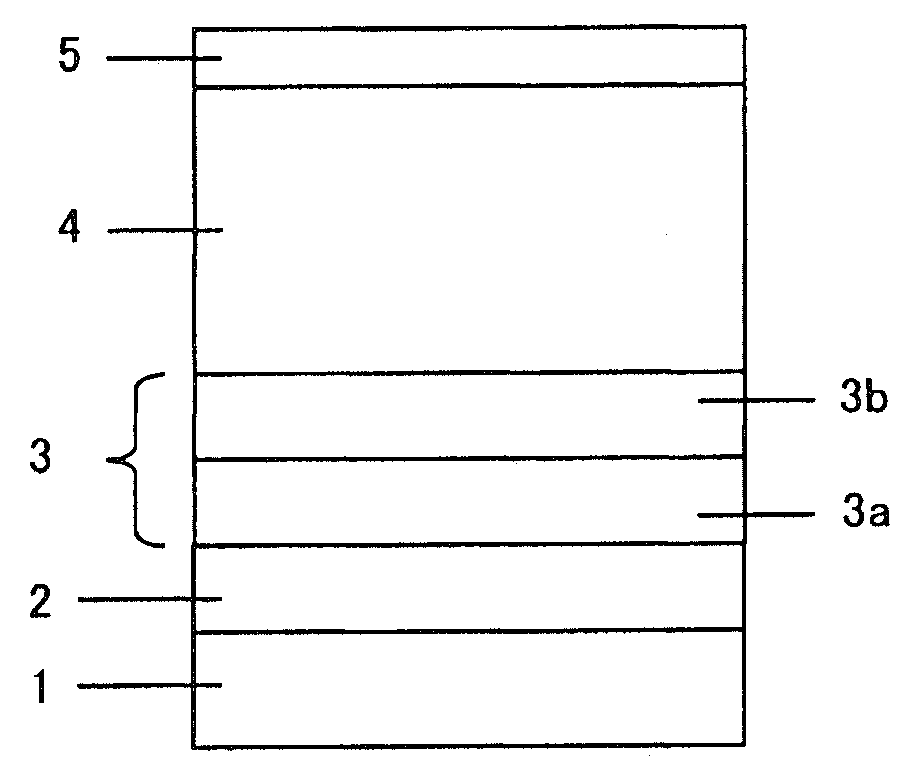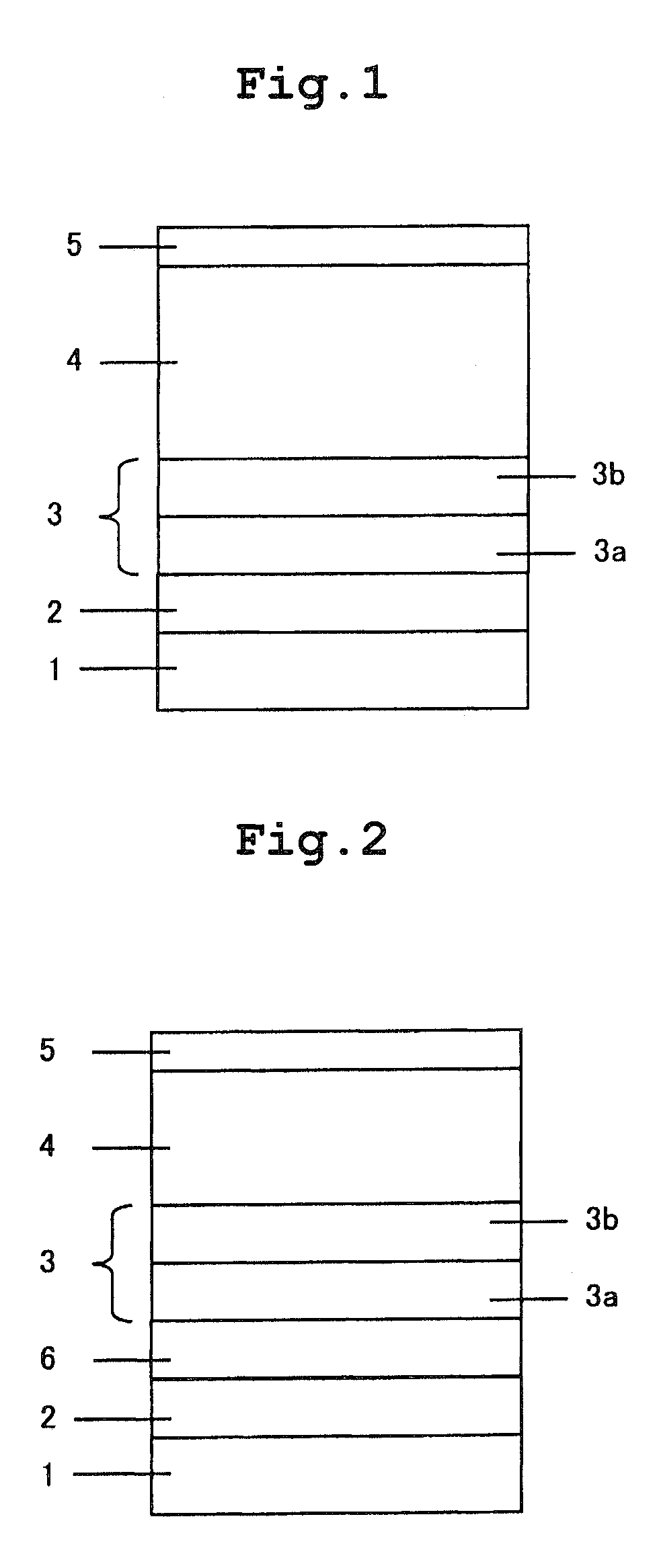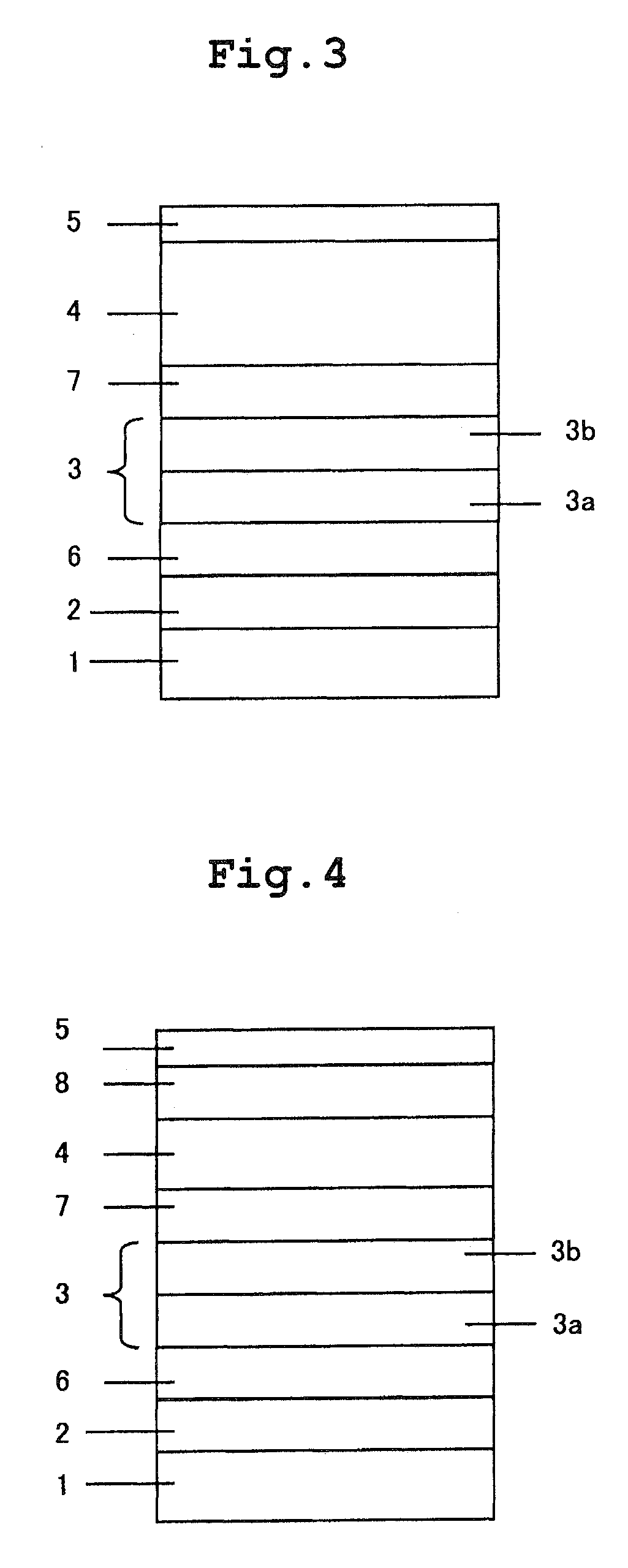Organic electroluminescent device
an electroluminescent device and organic technology, applied in the direction of discharge tube luminescnet screen, discharge tube/lamp details, luminescent compositions, etc., can solve the problems of reducing the performance of the device, short driving life, and reducing the service life of the device, so as to achieve stable luminescent characteristics
- Summary
- Abstract
- Description
- Claims
- Application Information
AI Technical Summary
Benefits of technology
Problems solved by technology
Method used
Image
Examples
example 2
[0158]The boat made of molybdenum and having the electron transporting material (Balq) represented by the following (Chemical Formula 18) put therein was energized and heated so as to deposit Balq on the anode ITO with a thickness of 5 nm under the condition such that the vacuum level was 1.9×10−5 Pa and the deposition rate was 2.0 A / s. The area containing the first electron transporting material in the Example 1 in which Alq3:Liq=3:1 was deposited thereon with a thickness of 5 nm, not 10 nm, and the other conditions were the same as those in the Example 1 so as to form an organic EL device.
[0159]The brief layered structure of the device is as follows: ITO / Balq (5 nm) / Alq3:Liq (5 nm, 3:1) / Al (1.5 nm) / α-NPD:MoO3 (10 nm, 4:1) / α-NPD (40 nm) / Alq3:C545T (30 nm, 100:1) / Alq3 (34 nm) / Alq3:Liq (10 nm, 3:1) / Al (100 nm).
example 3
[0160]MoO3 was deposited between the area containing the first electron transporting material and the area containing the first hole transporting material with a thickness of 10 nm under the condition such that the vacuum level was 4.7×10−5 Pa and the deposition rate was 1.0 A / s. The hole transporting layer made of α-NPD was formed with a thickness of 30 nm, and the other conditions were the same as those in the Example 1, whereby an organic EL device was produced.
[0161]The brief layered structure of the device is as follows: ITO / Alq3:Liq (10 nm, 3:1) / Al (1.5 nm) / MoO3 (10 nm) / α-NPD:MoO3 (10 nm, 4:1) / α-NPD (30 nm) / Alq3:C545T (30 nm, 100:1) / Alq3 (34 nm) / Alq3:Liq (10 nm, 3:1) / Al (100 nm).
example 4
[0162]An organic EL device was produced in the same manner as in the Example 1 except that the luminescent layer and the electron transporting layer formed thereon are formed to have the structure described below. The luminescent layer is a two-layered luminescent layer having a yellow luminescent layer and a blue luminescent layer.
The boat made of molybdenum and having α-NPD put therein as a host material and the boat made of molybdenum and having EY52 (by e-Ray Optoelectronics Technology Corporation (hereinafter referred to as e-Ray Technology Corporation)) put therein as a dopant were simultaneously energized and heated to co-deposit α-NPD and EY52 on the hole transporting layer made of α-NPD. The first luminescent layer in which α-NPD:EY52=100:1.5 was formed with a thickness of 20 nm under the condition such that the vacuum level upon the deposition was 1.5×10−5 Pa, the deposition rate of α-NPD was 2.0 A / s, and the deposition rate of EY52 was 0.3 A / s.
Then, the boat made of molyb...
PUM
 Login to View More
Login to View More Abstract
Description
Claims
Application Information
 Login to View More
Login to View More - R&D
- Intellectual Property
- Life Sciences
- Materials
- Tech Scout
- Unparalleled Data Quality
- Higher Quality Content
- 60% Fewer Hallucinations
Browse by: Latest US Patents, China's latest patents, Technical Efficacy Thesaurus, Application Domain, Technology Topic, Popular Technical Reports.
© 2025 PatSnap. All rights reserved.Legal|Privacy policy|Modern Slavery Act Transparency Statement|Sitemap|About US| Contact US: help@patsnap.com



